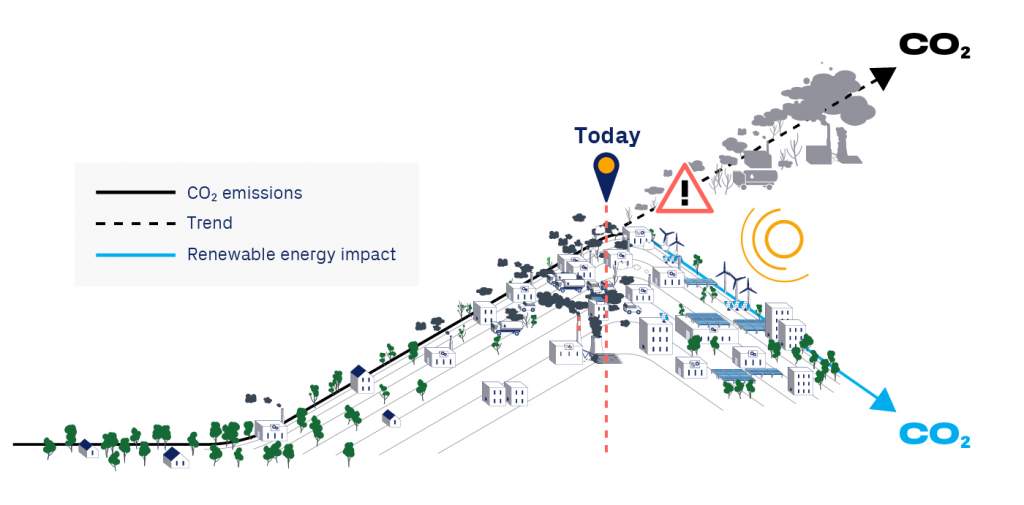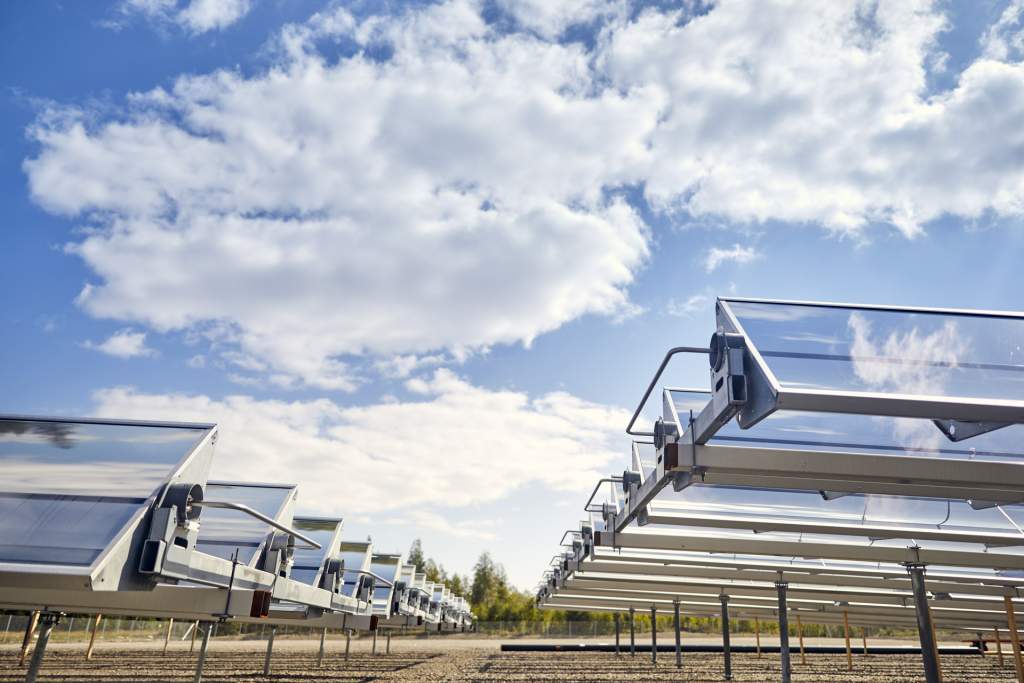Latest News:
2024-01-29
In the intricate web of Earth’s natural processes, the carbon cycle is a fundamental mechanism that sustains life. It encompasses the flow of carbon through the atmosphere, oceans, soil, and living organisms, forming a delicate balance essential for the health of our planet. However, the rapid pace of human activities, particularly the burning of fossil fuels, has disrupted this balance, triggering unprecedented challenges such as global climate change. The repercussions of these actions extend beyond environmental concerns, impacting industries that heavily rely on fossil fuels for their operations.

Numerous industries, ranging from manufacturing to transportation, have built their foundations on fossil fuels. This reliance not only exposes them to unpredictable price fluctuations but also raises concerns about the sustainability of their operations in the face of growing environmental awareness. As consumers and investors increasingly prioritize eco-friendly practices, companies find themselves under pressure to reduce their carbon footprint and transition to cleaner energy sources.
Regulatory bodies worldwide are stepping up efforts to combat climate change. Initiatives like the European Parliament’s “Fit for 55” energy efficiency target compel industries to rethink their energy strategies. These regulations not only serve as a regulatory framework but also present opportunities for companies to build resilience against energy price volatility and reduce their dependence on fossil fuels.
Industries such as beer, food, and beverages, which traditionally have significant carbon footprints, can play a pivotal role in sustainable transitions. By embracing eco-friendly practices across their supply chains, they can reduce their environmental impact and contribute to global efforts in fighting climate change.
One of the most significant challenges faced by the food and beverage industry is the heavy reliance on heat, constituting more than 70% of their total energy consumption. Addressing this issue presents both challenges and opportunities. By adopting innovative heat optimization technologies and transitioning to cleaner energy sources for heating processes, these industries can make substantial strides in decarbonization.

Electrification (heat pumps)
Electrification of the heat supply most often refers to the use of heat pumps. A heat pump is a device that transfers heat energy from low temperature levels to high temperature levels using electricity. It works by extracting heat from a low-temperature source, such as outdoor air, ground, or water, and transferring it to a higher-temperature medium, such as a home or a building.
Heat pumps are highly efficient in heating applications compared to electrical heating systems. They can be up to 3 times more efficient, meaning they can provide three units of heating energy for every unit of electrical energy they consume. However, heat pumps still require a significant amount of electricity to operate.
The environmental impact of heat pumps depends on the source of the electricity used, regions where the electricity grid relies on fossil fuels, heat pumps can result in CO2 emissions indirectly.
Biomass
Biomass involves burning organic materials like wood chips, sawdust, and agricultural waste to generate heat. The use of biomass as heating can be beneficial because it uses agricultural, forest, urban and industrial residues and waste to produce heat and/or electricity with less effect on the environment than fossil fuels.
However, one of the drawbacks with biomass is that forests are important to keep, since loss of trees and other vegetation can cause desertification, soil erosion, flooding, and increased greenhouse gases in the atmosphere.
Solar thermal
Solar thermal systems are used to generate heat. They collect sunlight using solar collectors and use it to heat a fluid (usually water or antifreeze) for various applications such as steam in industry. The technology is highly efficient in converting solar energy into heat and can achieve conversion efficiencies of up to 70% or more, depending on the specific design and operating conditions.
Solar thermal systems produce zero or negligible greenhouse gas emissions during operation as they use renewable energy from the sun. They help reduce carbon footprint and dependence on fossil fuels.
Solar thermal has the lowest levelized cost of heat of all renewable heat sources. The levelized cost of heat estimates the average cost of providing 1 MWh of heat over the lifetime of the equipment, taking into account the capital costs of the equipment and installation; operating expenditures include the cost of fuel and regular maintenance.

Depending on the conditions of the facilities where the technologies will operate, such as available space, required heat/steam temperature, electricity prices, sun radiation of the location etc, a collaboration of technologies is recommended. A customized integration between technologies will opimize the price and overall system performance.
The imperative for industries to decarbonize is no longer just a moral obligation; it is a strategic business move. Embracing sustainable practices not only helps companies align with global climate goals but also insulates them from the unpredictable nature of fossil fuel markets. The food and beverage industry, with its substantial carbon footprint, has a unique opportunity to lead the way in sustainable transitions, setting an example for others to follow.
Learn more about Industrial Decarbonization with renewable Solar Thermal: